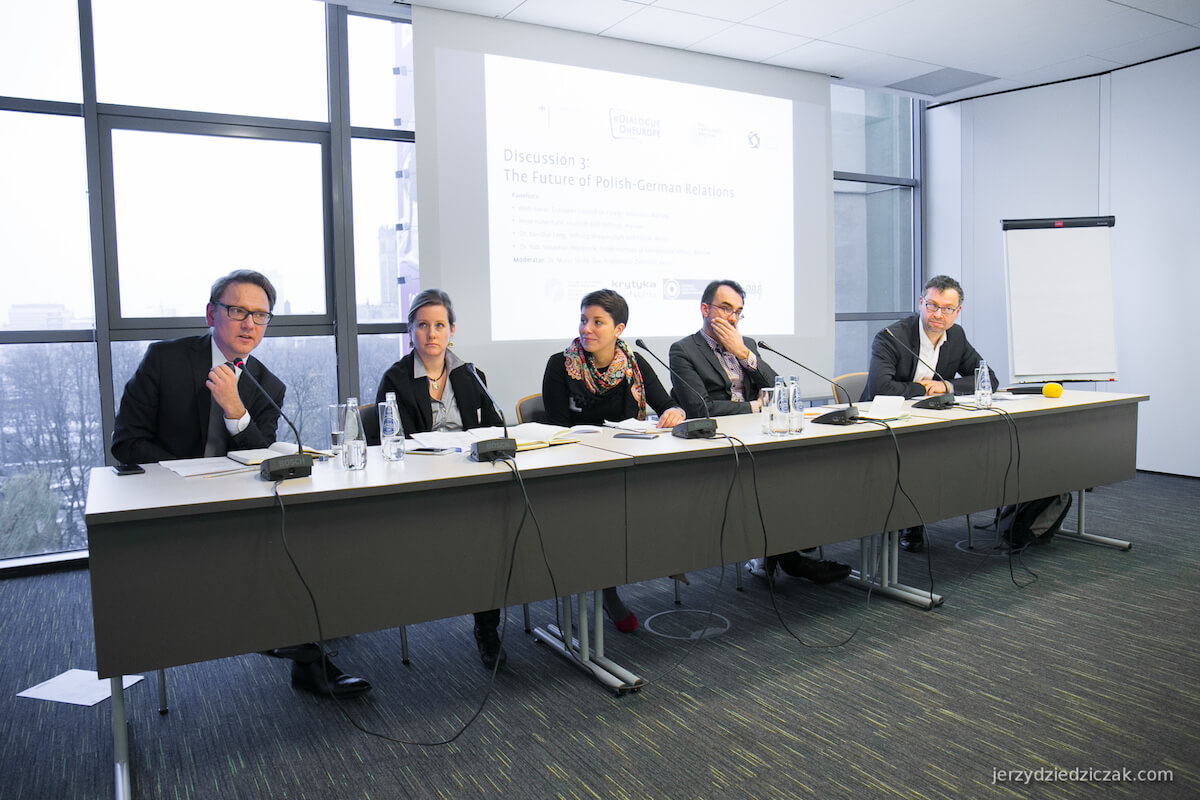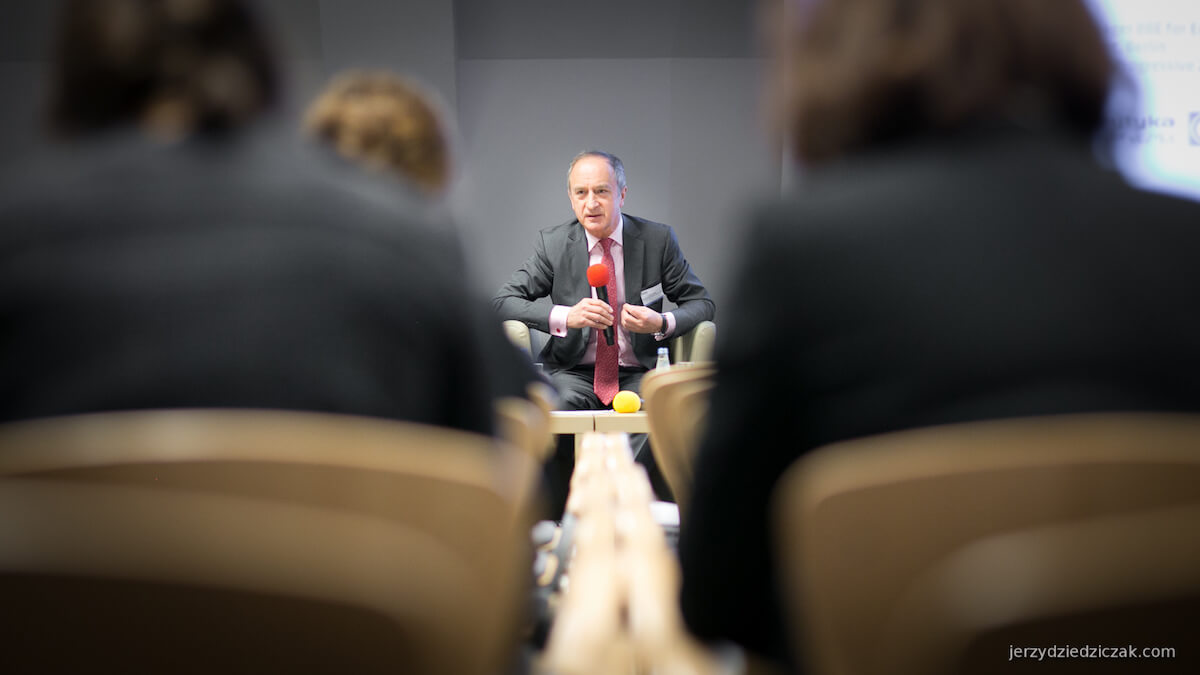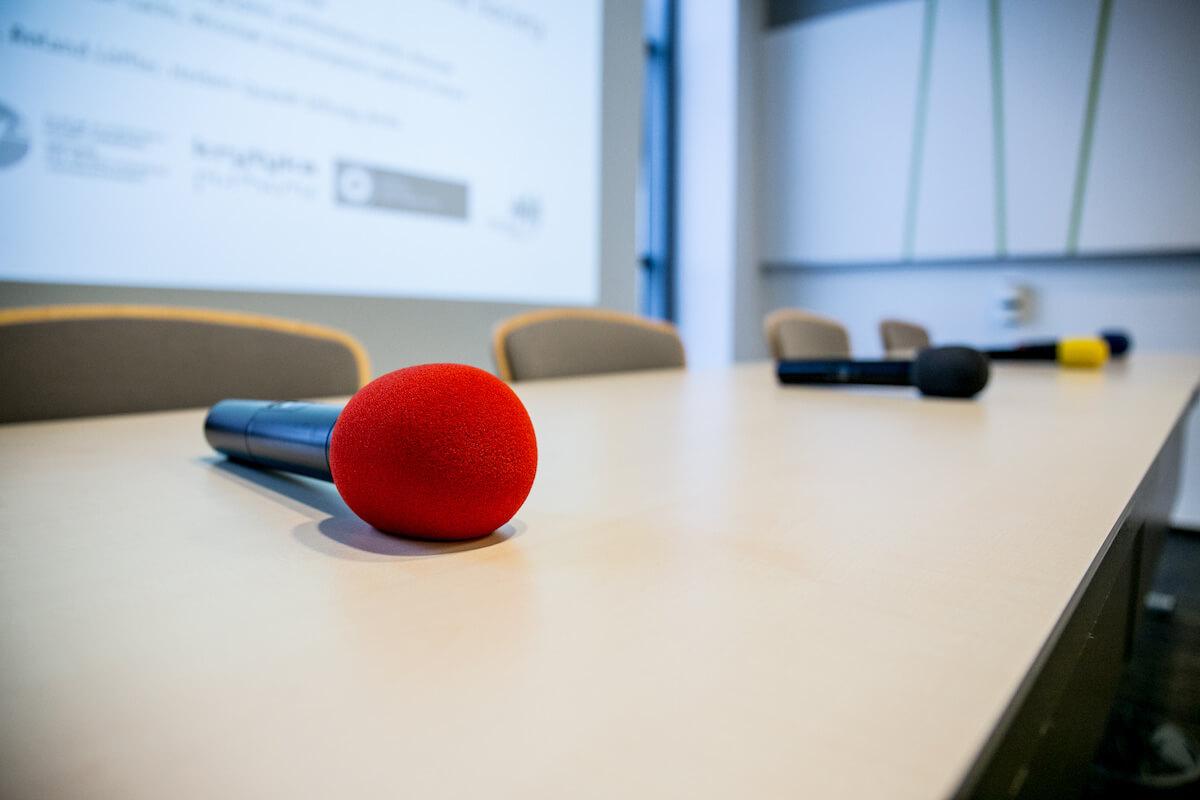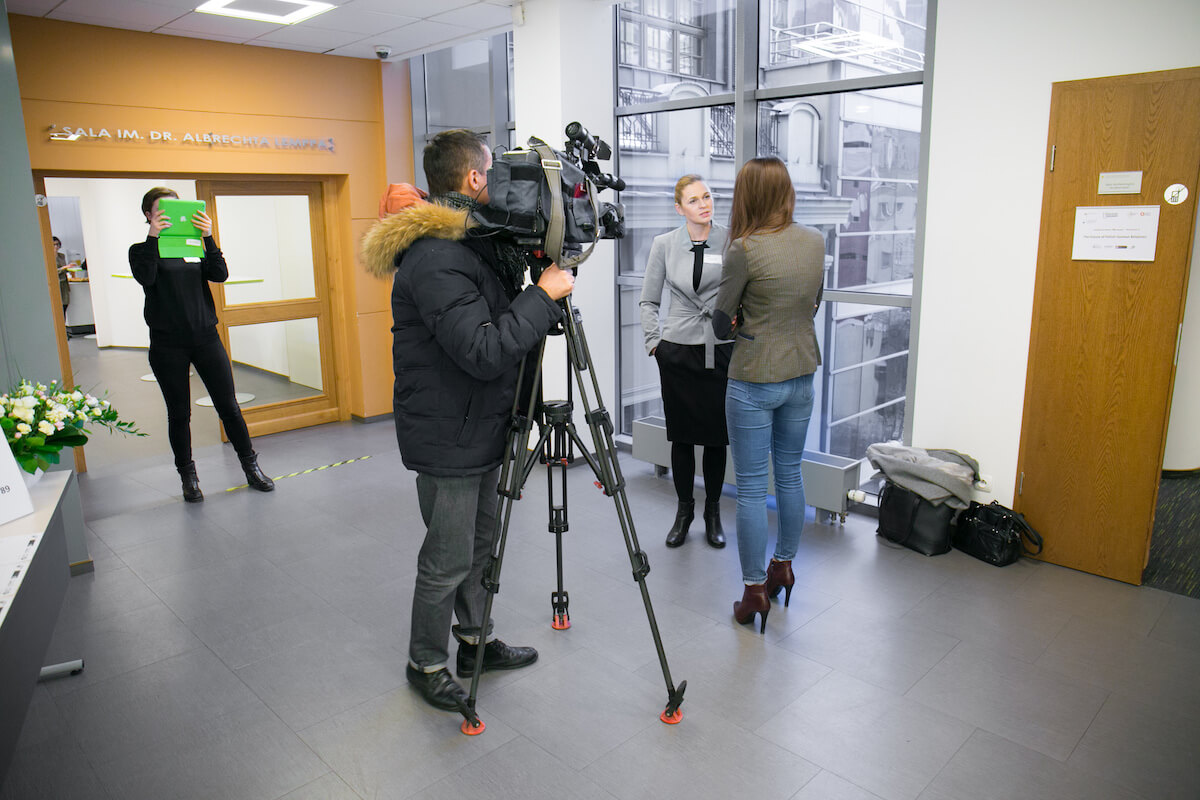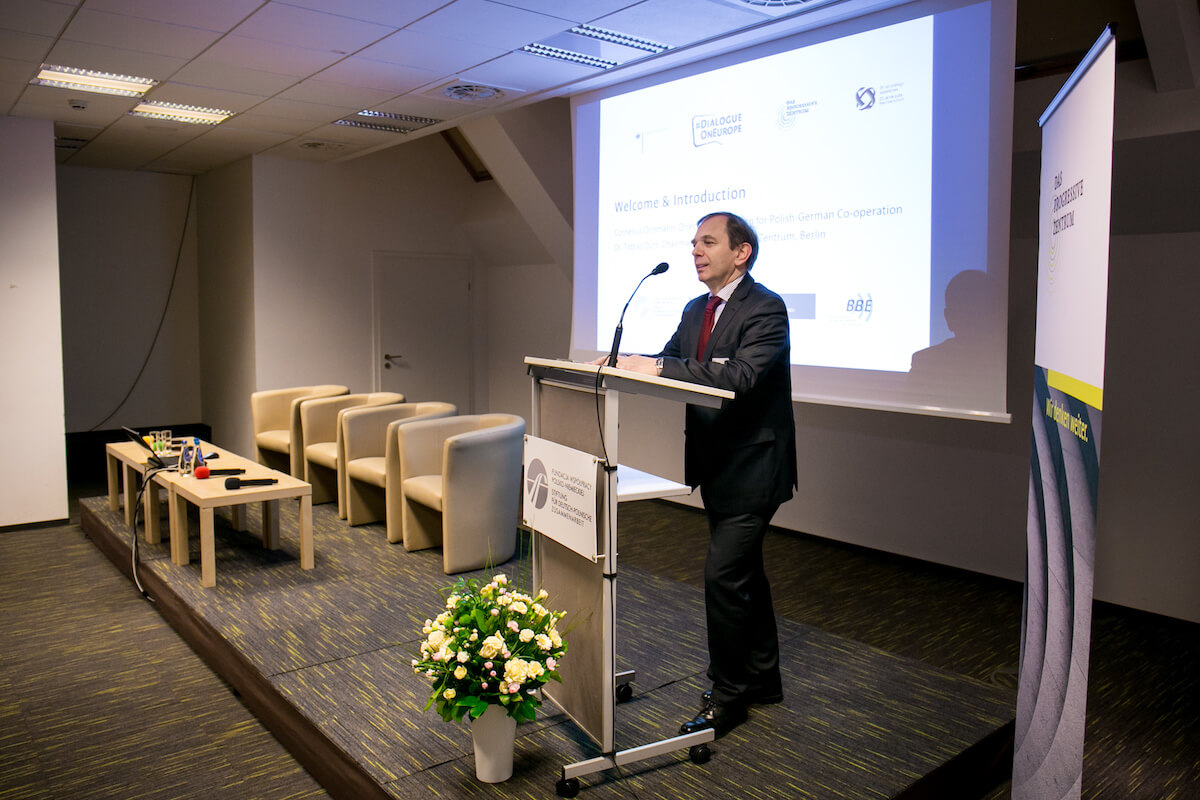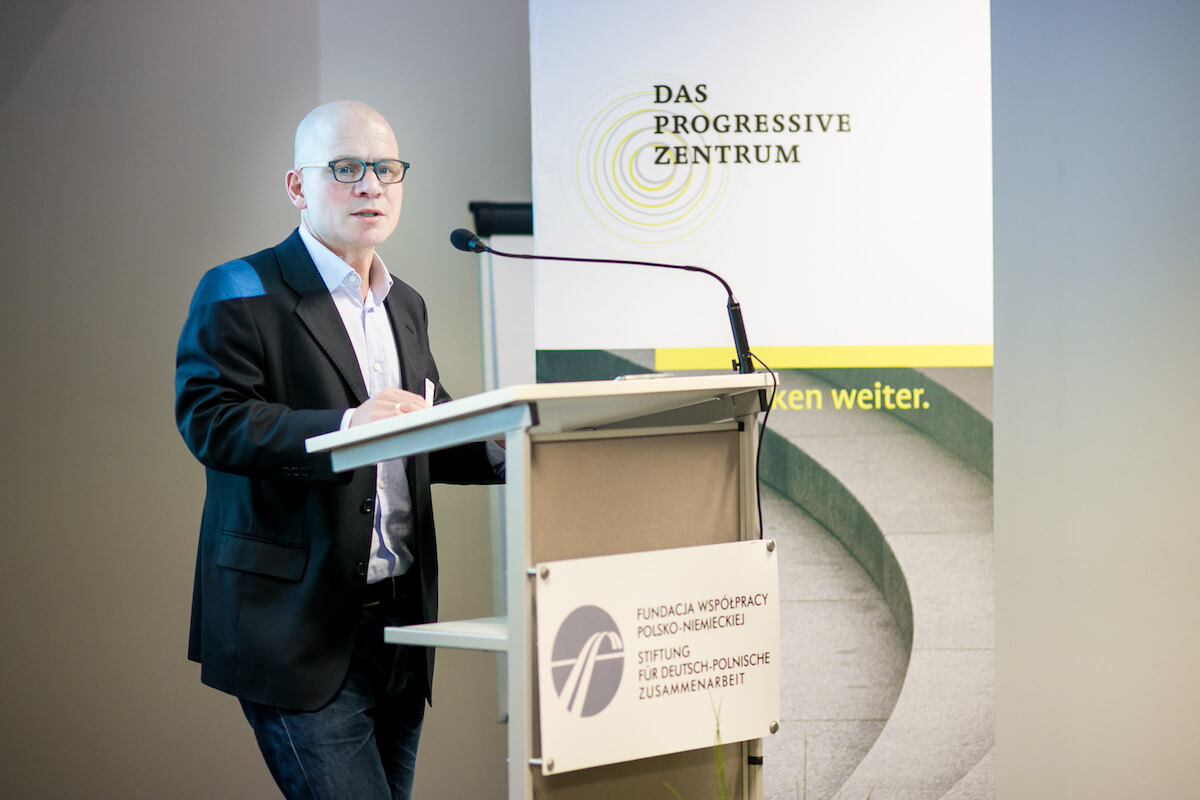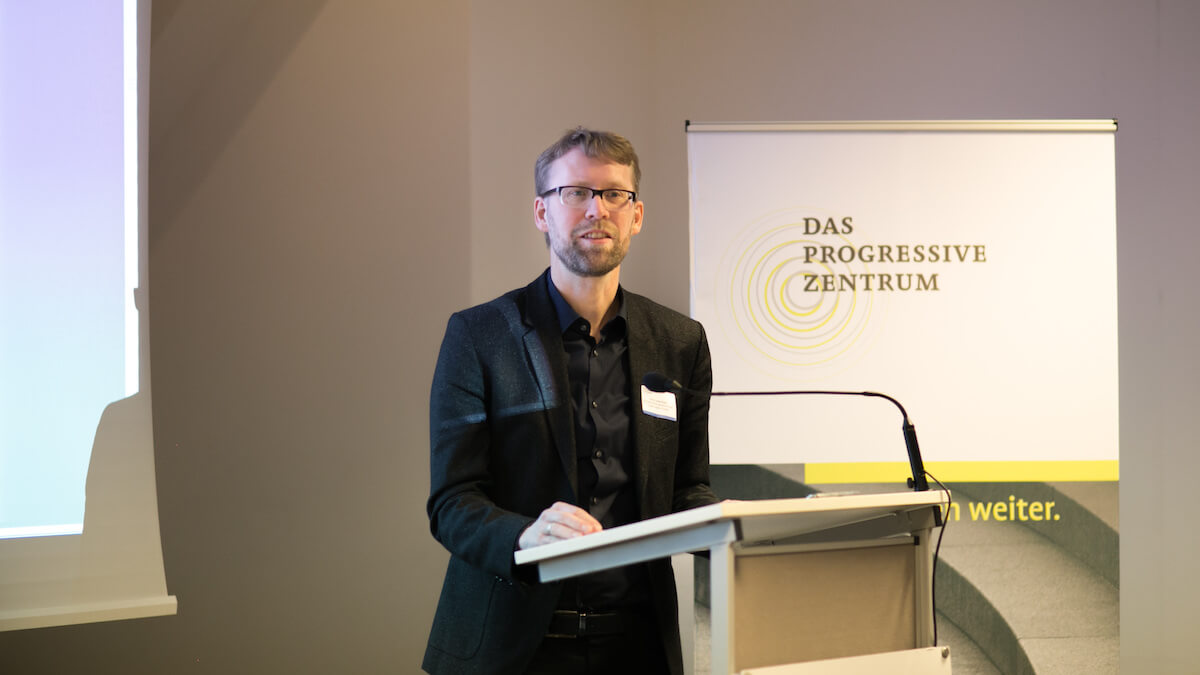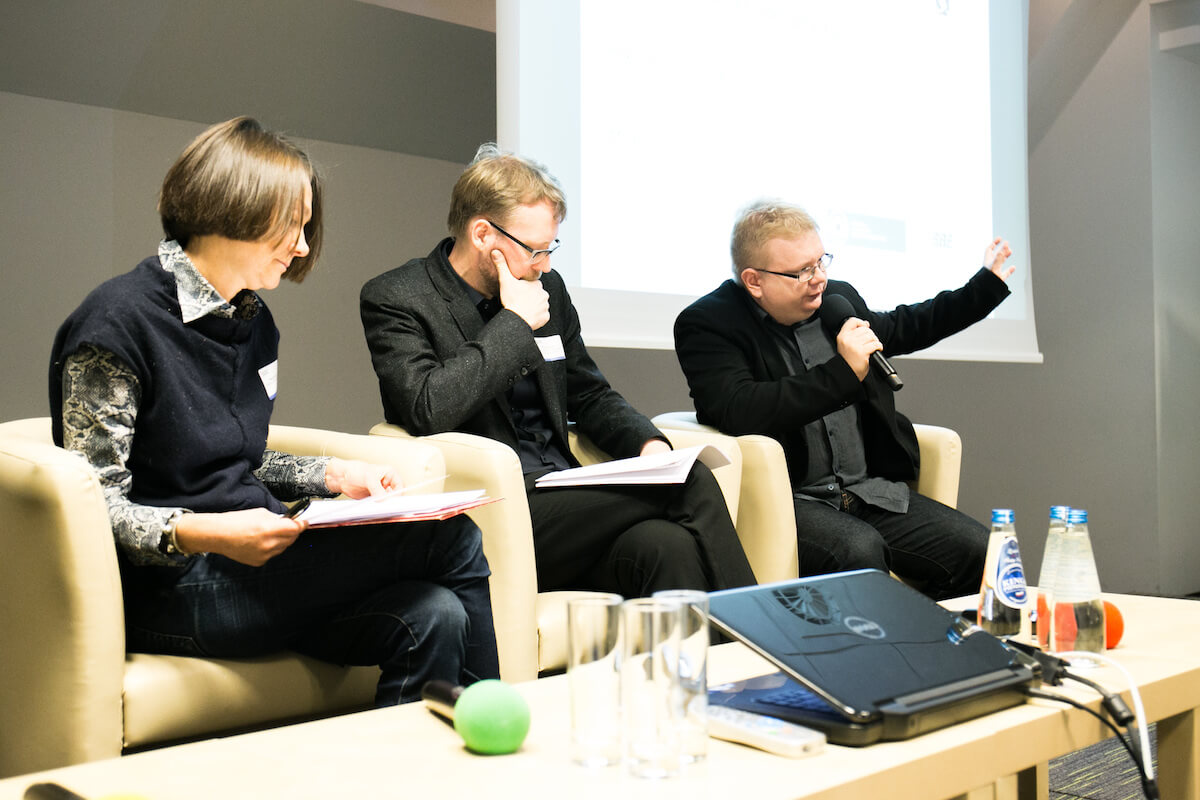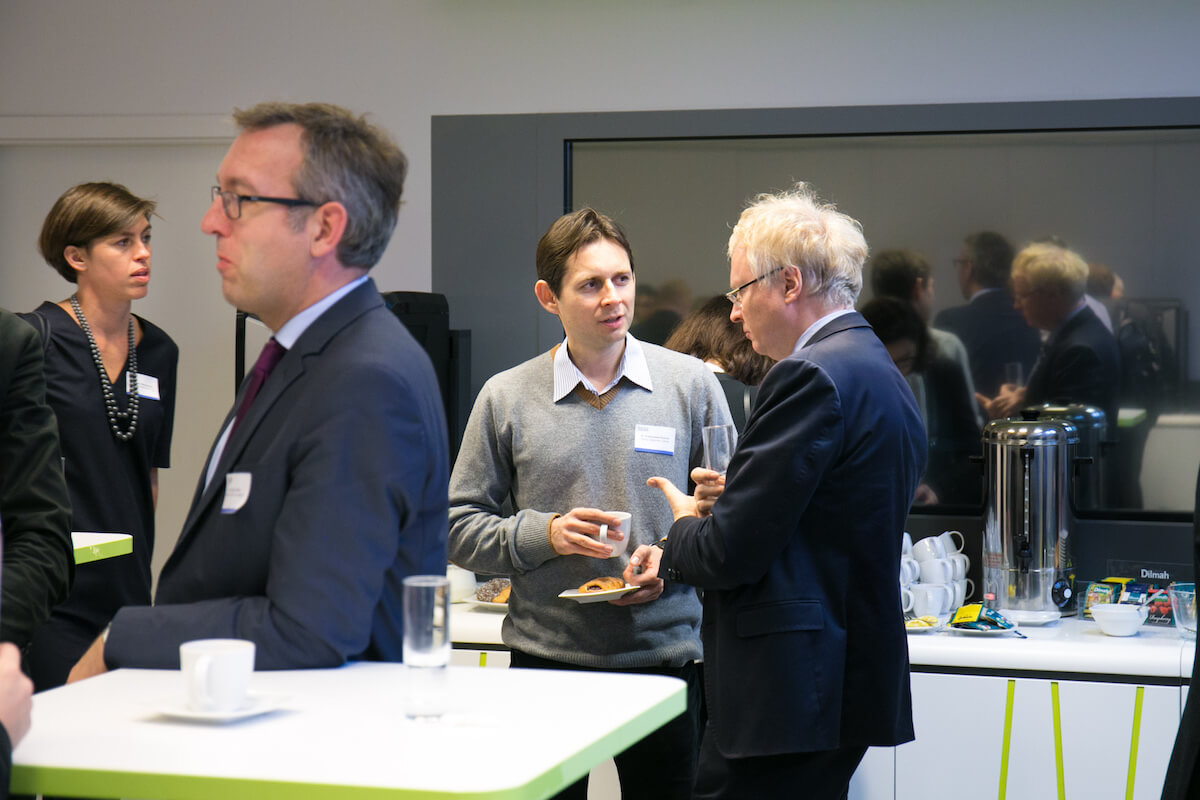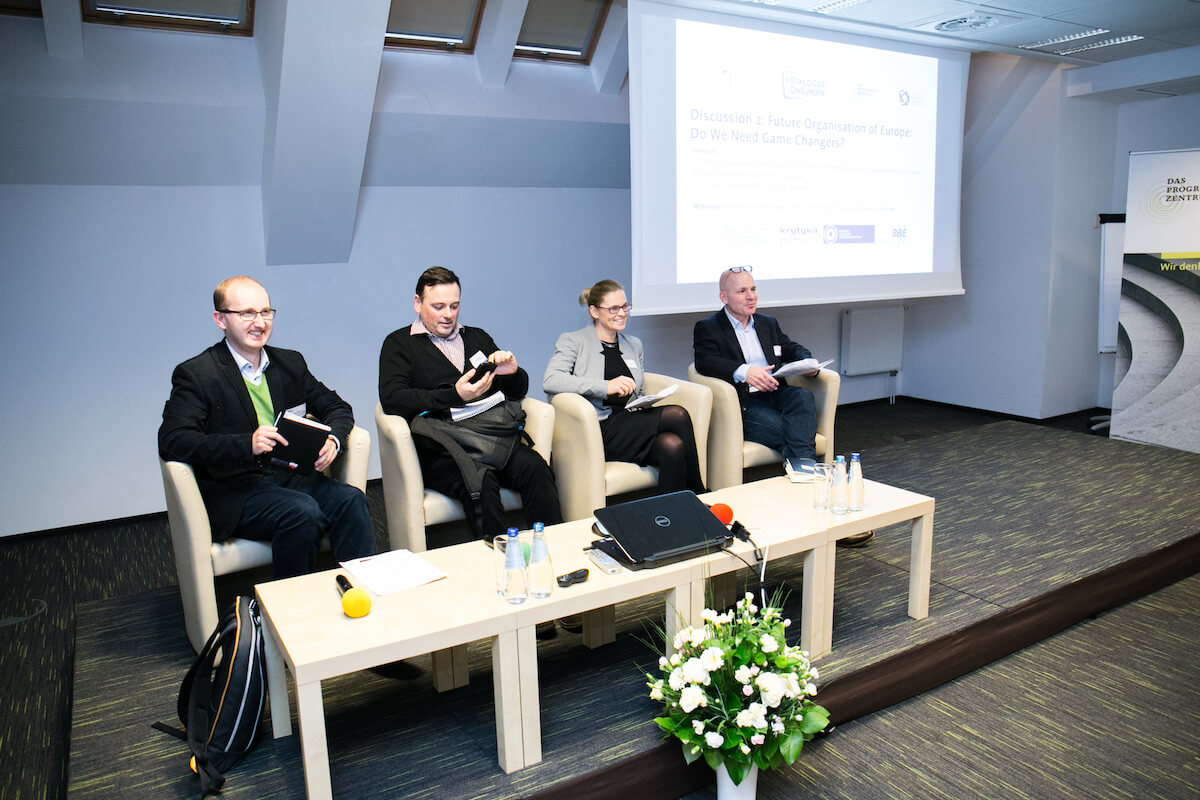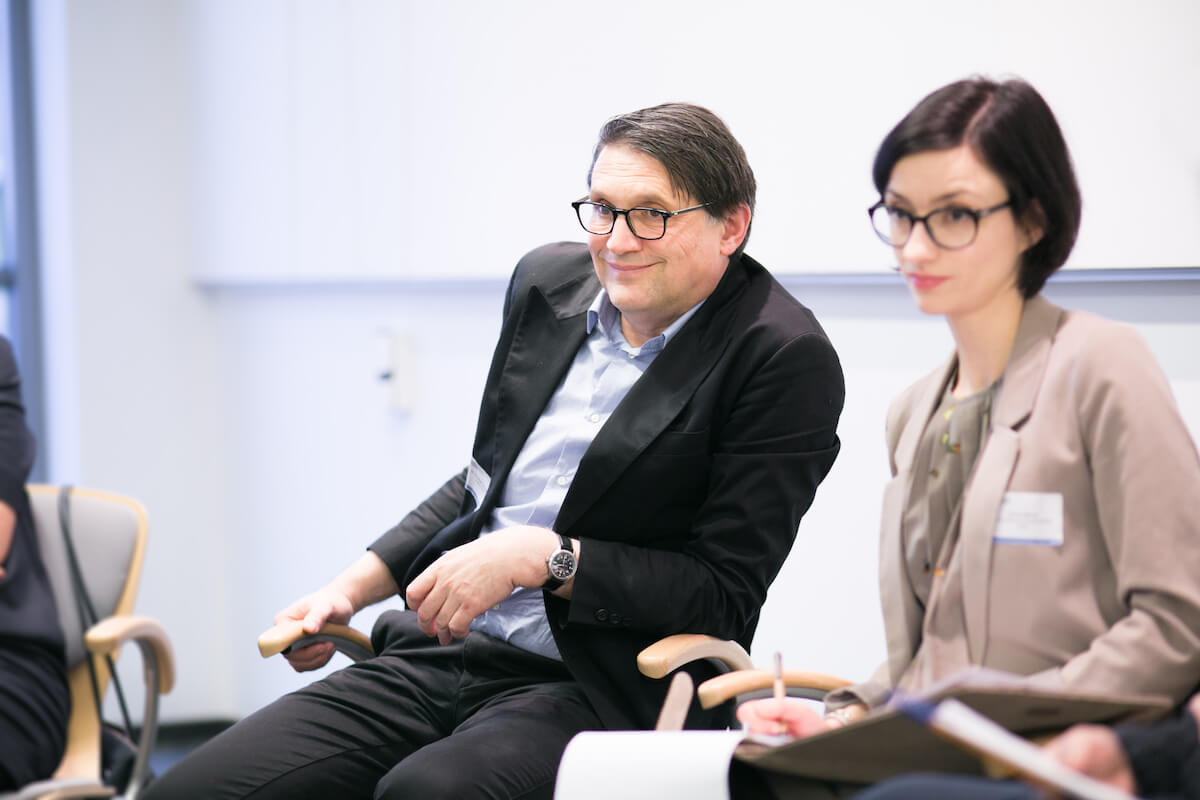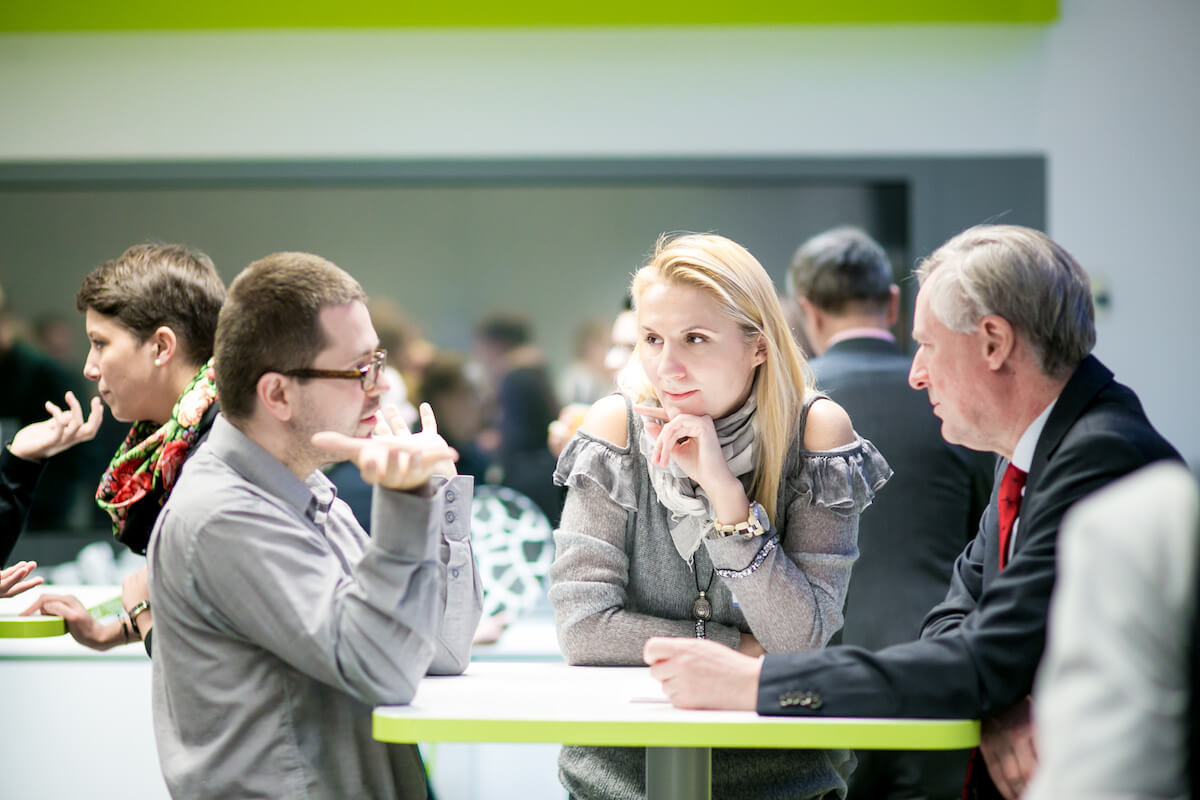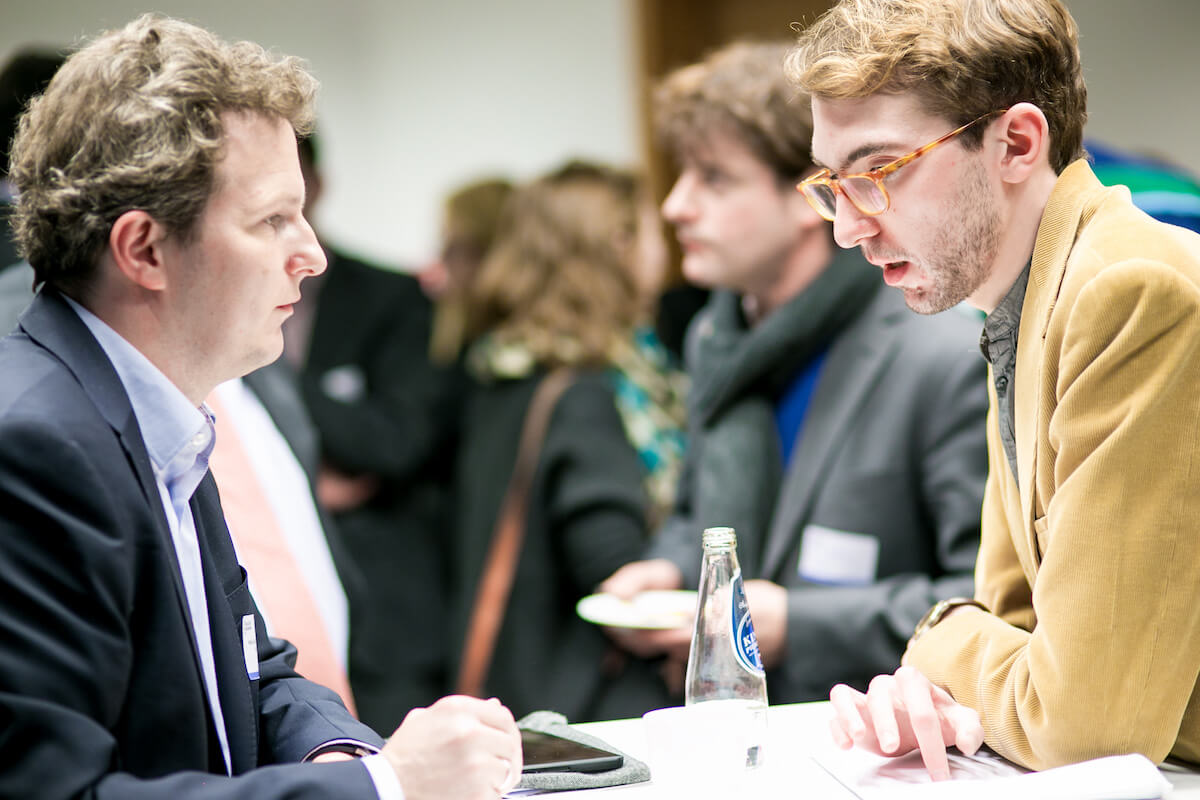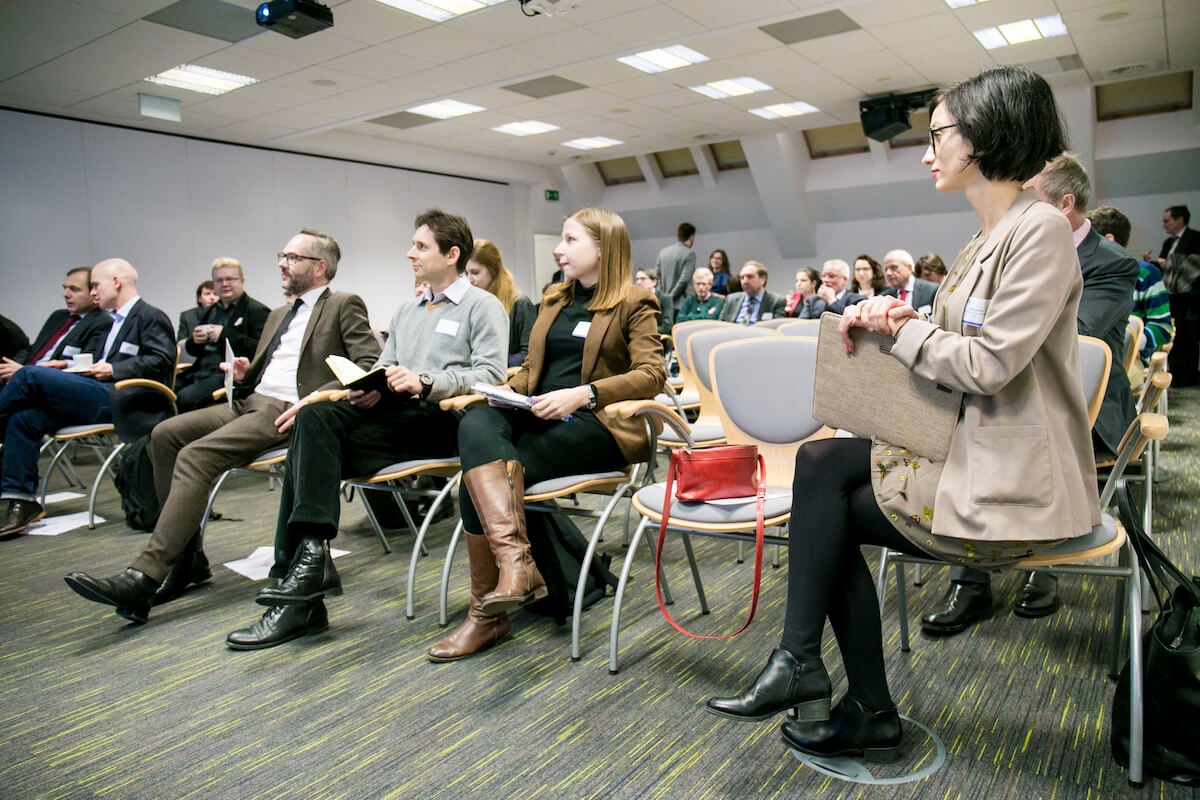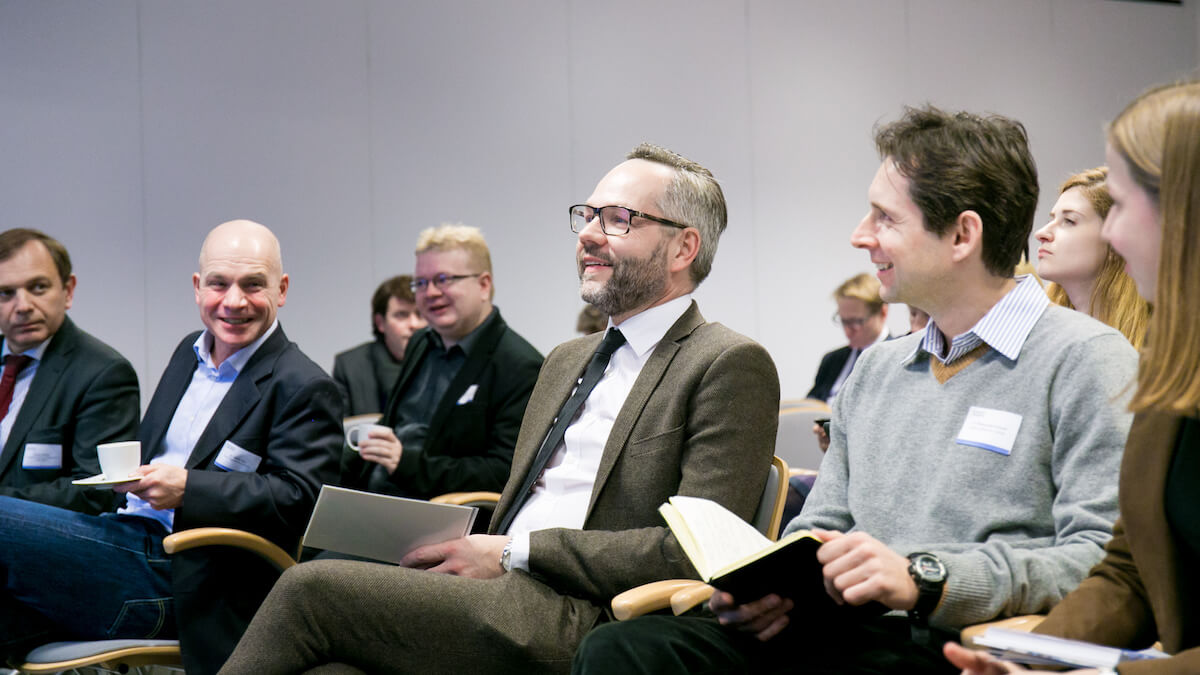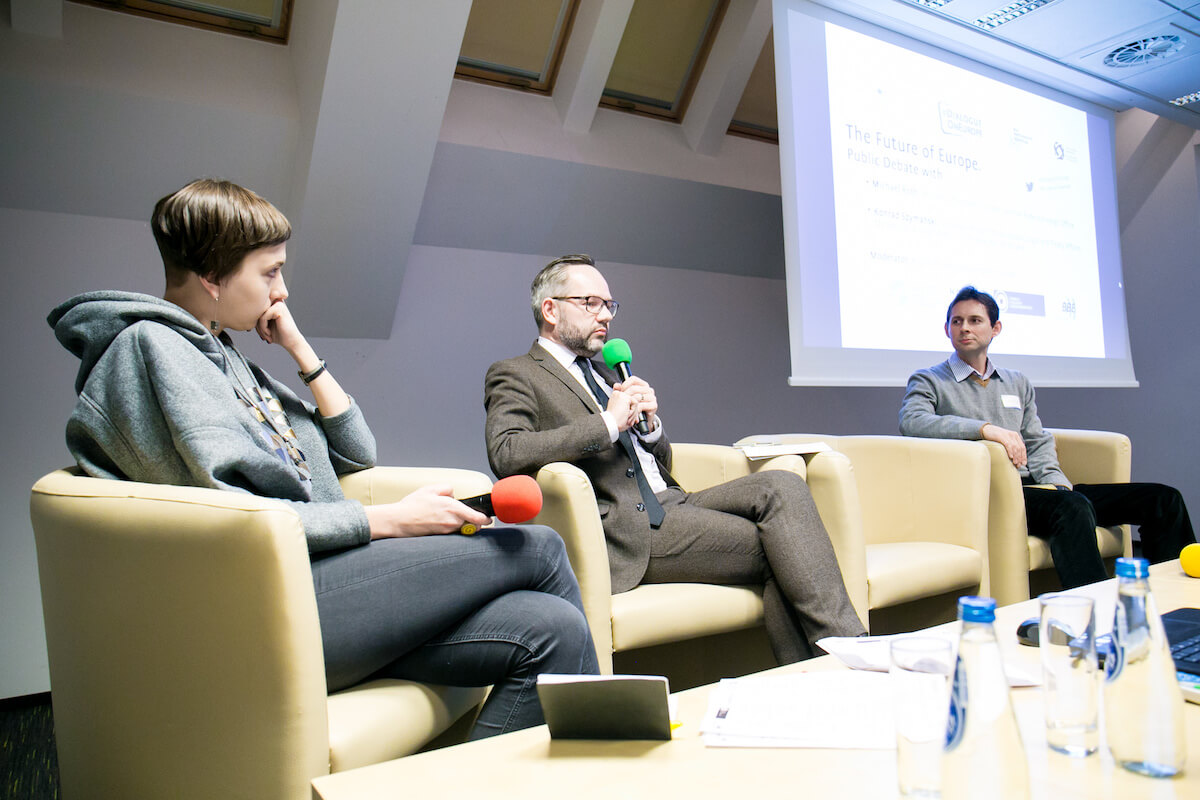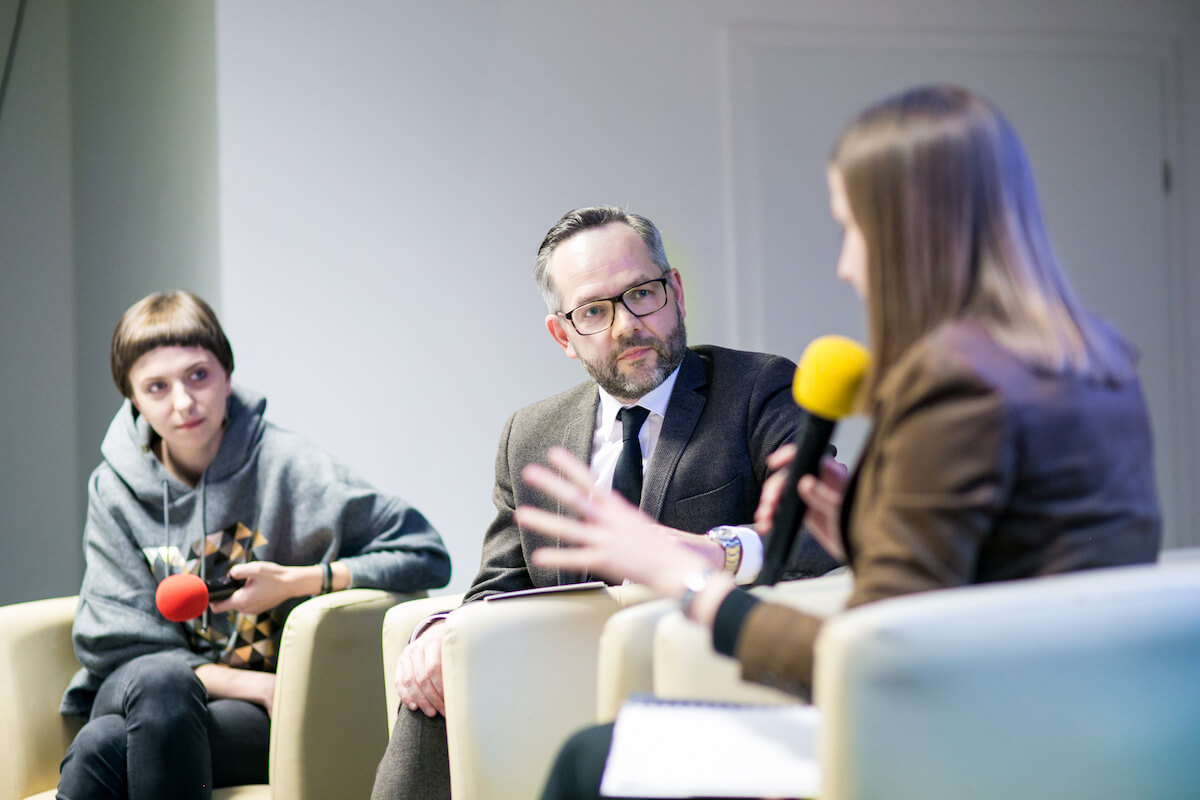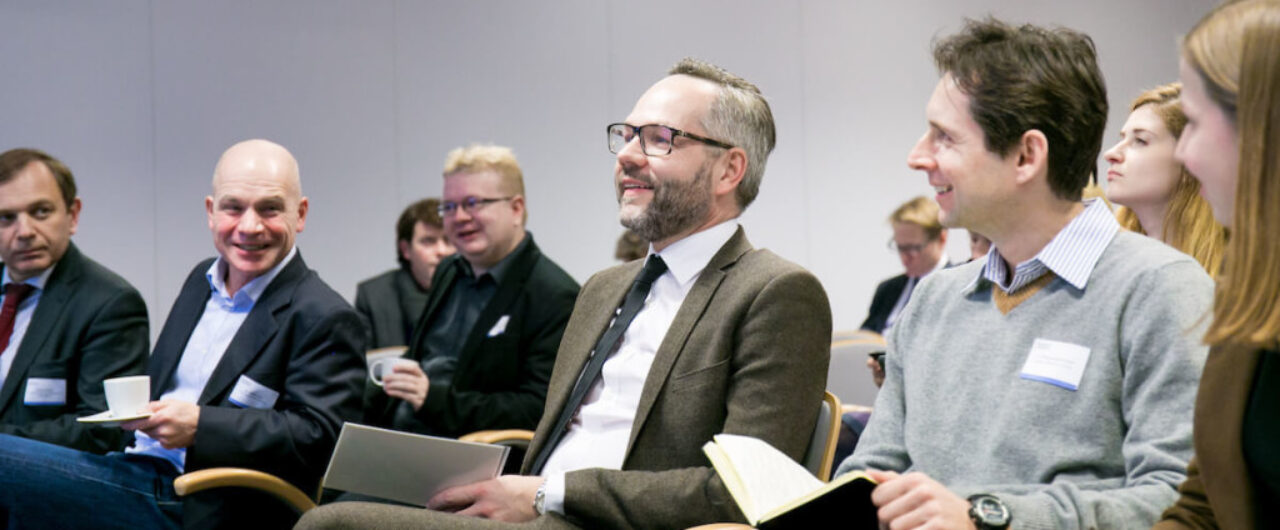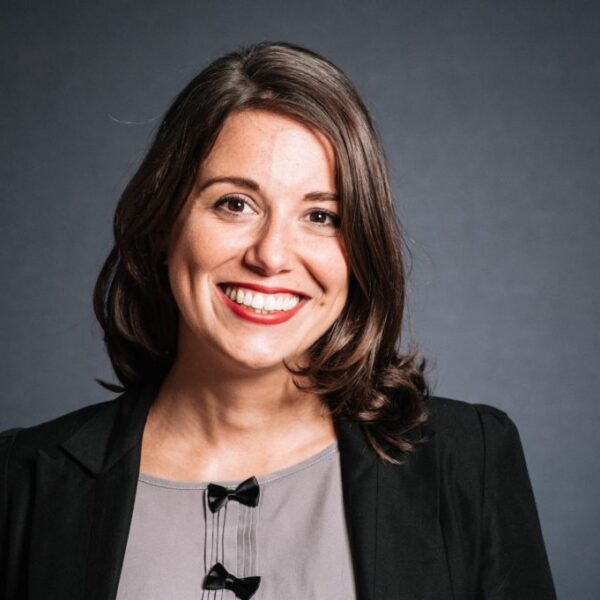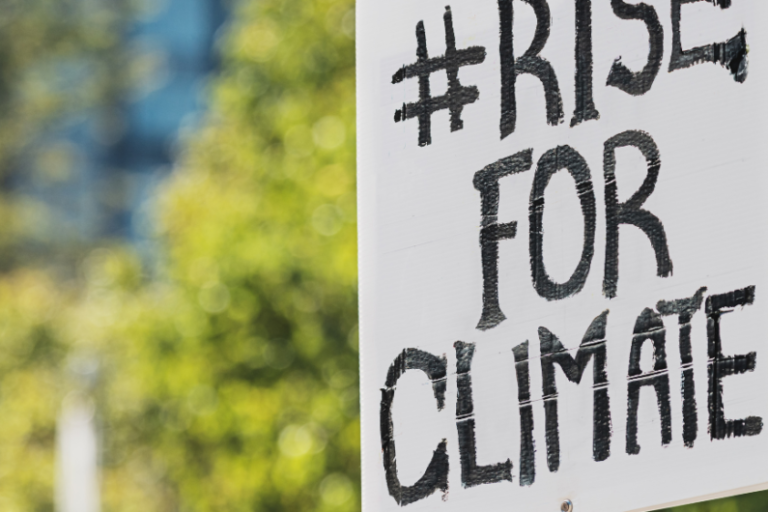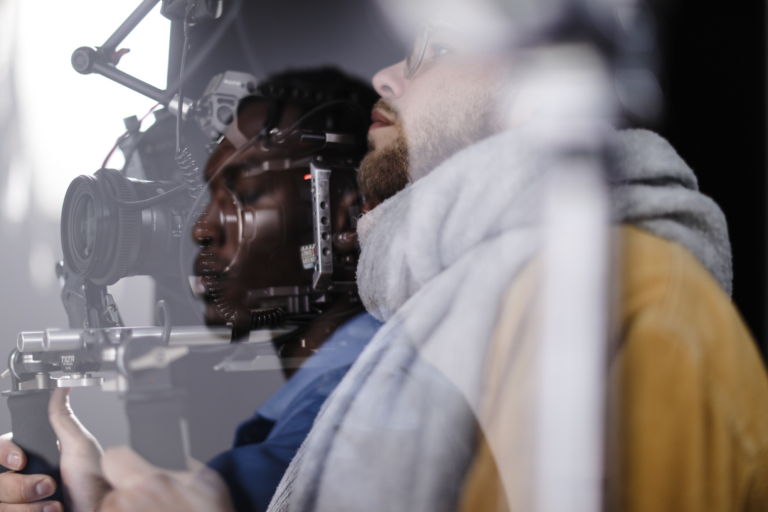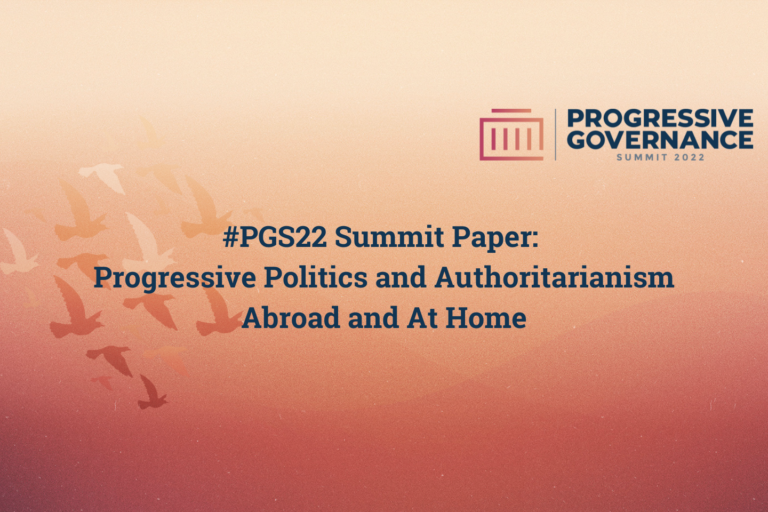Exactly one year after launching DIALOGUE ON EUROPE, a further bilateral half-day #TownHallMeeting was organized – this time in Warsaw. On December 7 th , representatives of academia, civil society and culture from Germany and Poland followed our invitation to discuss possible future scenarios for Europe. Open discussions fed directly into a live conversation about the challenges of European integration and Polish-German relations with Michael Roth, German Minister of State for Europe.
Cornelius Ochmann, Director of the Foundation for Polish-German Co-operation, and Tobias Dürr, Chairman of Das Progressive Zentrum opened the event: The relevance of a well-connected and active civil society for sustainable and successful European integration was their shared message highlighting the reasons behind organizing open Town-Hall- Meetings around Europe.
The first keynote speech was delivered by Jochen Roose, professor at the Willy Brandt Center for German and European Studies in Wroclaw, who shared his ideas for bringing Europe together again. He presented a framework for possible solutions to overcome current political and institutional crises in Europe: a shared vision of Europe, embodied in European citizenship and European solidarity; rebuilding civic trust in European institutions and political mechanisms and launching a transnational discourse on European political and social issues. By building up common knowledge on European challenges and opportunities the civil society could develop a new, constructive understanding of the European Community. Building on this perspective, Katarzyna Kozyra, sculptor and performance artist, founder of the Kozyra Foundation for supporting female artists and artistic activities in the public sphere, elaborated on the role of culture and art for European integration and a unified transnational civil society.
“What’s next, Europe?”
Following, three parallel panel discussions focused on the role of culture in modern societies, the future organization of Europe and Polish-German relations. In exchange with experts such as Christoph Bartmann, Director of Goethe Institute in Warsaw, and Katarzyna Młyńczak-Sachs, international relations manager of Wroclaw 2016 European Capital of Culture, the participants of the “Culture in Dialogue with Politics and Society” panel discussed how to reconcile national cultures with the European one and whether artists could mediate this challenging relation.
Conclusion: before discussing the role of culture in politics and society, a clear distinction between culture and art is necessary. Culture is something societal, whereas art is purist, aesthetic. Unless they are outspokenly political, artists don’t consider whether they contribute to European identity or not. Free, underground art is not promoting political issues. National agendas often speak for governments or just promote cultural products. Meanwhile, art or culture should always be transnational – otherwise, they can’t be art or culture. In that sense, fostering international culture cooperation means that working with partners to create something transnational does not directly translate into promoting the culture of a country or exhibiting products. Culture is a mixture of the universal and the specific, if there are too many regional aspects, people won’t understand it, especially when the key tool of promoting country cultures are national languages. Additionally, a dilemma of financing culture and independence of artist arises. Does being a “grant-eater” mean that artists become agencies of certain interests? What if there are attempts to use art as a propaganda tool by politicians? A solution might be to rely on more than a single financial source. Recommendations arising from the discussion were very clear: they suggested securing the autonomy of the cultural sector and introducing more international cultural exchange, cultural education and financial incentives for launching culture activities at the local level, in peripheral areas.
The second panel featured Barbara Nowacka, a progressive politician and leader of a feminist protest movement and Marcin Kędzierski from the Centre of Analysis of the Jagiellonian Club, a republican Think-Tank from Cracow. Gavin Rae, professor at the Kozminski University, joined their search for potential European game changers, which could reform the current course of European politics. The discussion revealed that people still fight for values which emerged during The French Revolution in 1789: liberty, equality, solidarity. The economic crisis that started in 2008 had long-term consequences, hitting the centre of the world economy, which triggered the rise of nationalism and populism in the core countries of the EU. Nation states are not as strong as they used to be in the past, the elites lost their credibility. Main political parties had very similar solutions to the economic problems and as a result, traditional division between the left and the right seemed to be less and less adequate as an explanatory tool for describing party systems. Meanwhile, the citizens in the EU want changes. On the one hand, there seems to be rising an important “game changer”: a group of young women in Poland initiated Black Protests defending their reproductive rights, in Austria predominantly young women voted against the FPÖ presidential candidate, Norbert Hofer. Brexit, on the other hand, was also a “game changer”, but a negative one: votes supporting it were cast in favour of the political forces which opposed the ruling elites. The problem was, however, that fake news were accepted widely and the post-truth politics became a mainstream trend. Thus, a new paradigm in analysing the problem emerged: perhaps new rules of the game are needed, not the game changers only?
Polish-German relations were the topic of the third discussion: Together with the audience, Kai-Olaf Lang, (The German Institute for International and Security Affairs – Stiftung Wissenschaft und Politik), Piotr Buras (European Council for Foreign Relations), Irene Hahn-Fuhr (Heinrich-Böll- Stiftung), and Sebastian Płóciennik (Polish Institute of International Affairs) developed ideas on how to improve bilateral exchange and turn the German-Polish neighbourhood into a role model across Europe. Times are challenging for Polish-German relations. Not only Eurosceptic sentiments and growing nationalism have a negative impact, but also polarization within the societies matter. Many issues from the past have not yet been solved. Contradicting narratives are often used in political discussions, there still exist many negative stereotypes on cultural differences on both sides. Significant differences persist in economic potential of both countries: Poland pursues a low-cost economic paradigm, allowing technological asymmetry to grow. There are no significant strategic investments uniting both countries in a joint endeavour. However, despite those problems, Germany has historically been the major partner in the West for Poland. There still are differences of opinion among both countries that deserve some attention, but conflicts are inevitable and can have a positive function if led in a constructive way. Governments come and go – societies stay. The interlinkages between the Poles and the Germans work independently. Through closer economic cooperation and joint scientific and educational projects, future mutual relations could not only be maintained but also improved, if only a more pragmatic approach would be adopted.
Debating the future of the European Union with Michael Roth
Michael Roth joined the event for an open debate with the audience. Katarzyna Mirecka, junior economist at the Center for Social and Economic Research, Przemysław Potocki, co-founder of the Igrancy Daszyński Center and Aleksandra Żebowska, employee of the Koźmiński University, agreed to be the rapporteurs for each panel, briefing German Minister of State for Europe on the details of all three discussions. Engaging in a discussion with the audience, Roth stressed that what Europe’s future will look like is not a question only for politicians and the usual suspects. The dialogue about Europe’s prospects must to a greater extent be conducted outside EU headquarters and conference centres. All representatives of civil society should be involved. He looked forward to enthusiastic and vivid debates among committed Europeans in Warsaw. Next, the event was closed by a concluding speech delivered by Janusz Reiter, former ambassador of Poland in Germany and the founder of the Centre for International Relations, leaving the participants with even more food for thought that evening.
The #EuropeanTownHall Meeting in Warsaw was organized with the support of the German Federal Foreign Office in cooperation with Bundesnetzwerk Bürgerschaftliches Engagement, Krytyka Polityczna and Centrum Stosunków Międzynarodowych, with friendly support of the Foundation for Polish-German Cooperation. The agenda of the event can be found here.
